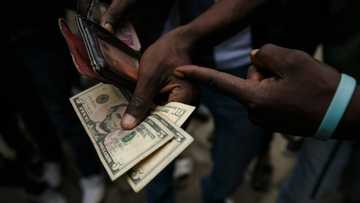From Fuel Hikes to High Utility Bills: How South Africa's Cost of Living Compares to Neighbouring Countries
The cost of living has increased dramatically in the last few months and there is no indication that it could be decreasing any time soon. Briefly News takes a look at how expensive things really are.
New feature: Check out news exactly for YOU ➡️ find “Recommended for you” block and enjoy!

Source: Getty Images
Fuel prices have hiked to the point that South Africans are paying over R24 per litre for petrol. Essential foods such as sunflower oil are selling for over R100 for two litres at many supermarkets.
South Africans now find themselves in precarious positions where they now have to stretch out their monthly income to make ends meet. First National Bank (FNB) recently noted that the middle class in SA is struggling to stay afloat.
FNB stated that on average, consumers in this category spend 80% of their income in just five days, reports News24. This means that these individuals or households survive on just 20% of their monthly income for over three weeks.
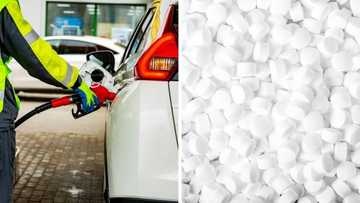
Read also
No, those 'fuel pills' going viral on social media claiming to reduce fuel consumption don't work and can damage a car's engine
The factors contributing to an increase in the cost of living do not just affect South Africans, they also affect neighbouring countries too. Briefly News takes a look at what South Africa's cost of living looks like in comparison to our neighbouring countries of Namibia, Botswana, Zimbabwe and Mozambique.
PAY ATTENTION: Follow Briefly News on Twitter and never miss the hottest topics! Find us at @brieflyza!
How much does food cost in South Africa versus neighbouring countries?
The cost of living index by Numbeo, one of the largest databases in the world that collects information from contributors, calculates how much the average cost of living in a certain country is.
Numbeo looks at factors such as how much the average rent in the country or what an average MacDonald's meal costs. The cost of living also breaks down how much basic foods cost in a certain country.
According to Numbeo, a loaf of white bread in South Africa costs R20 on average. The average price for white bread in Botswana is R15.97, R26.58 in Mozambique, R15.64 in Namibia and R37.42 in Zimbabwe.
One litre of regular milk in South Africa costs R26.99 at most, while in Botswana milk can sell for R30.61, R29.24 in Mozambique, R22.94 in Namibia and R42.27 in Zimbabwe.
Here's how much one kilogram of fruit and vegetables costs on average in the southern African countries:
Apples | Bananas | Potatoes | Onions | |
South Africa | R24.20 | R22.50 | R18.81 | R17.68 |
Botswana | R30.14 | R22.42 | R23.12 | R24.80 |
Mozambique | R34.75 | R15.57 | R14.62 | R18.61 |
Namibia | R33.19 | R30.23 | R20.21 | R18.07 |
Zimbabwe | R50.34 | R28.76 | R29.57 | R24.80 |
It is important to note that even though Zimbabwe's potatoes and onions average between R29.57 and R24.80, they can reach a high price tag of R67.90 and R50.93, respectively.
What are the average family's monthly costs in South Africa in comparison to neighbouring countries?
An average family of four in South Africa has expenses that amount to roughly R 31 350 without the expense of rent. Utilities such as water and electricity can cost R1 715.
In Bostwana, the average-sized family of four can spend R29 480 on monthly expenses and utilities cost around R686. In Mozambique, an average family of four spends around R38 600 to live and R1 680 on utilities.
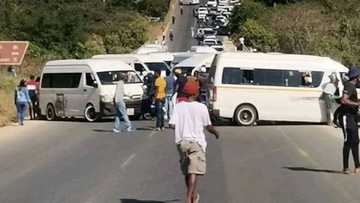
Read also
Mpumalanga shutdown wrecks havoc for chrome and coal exporters, authorities on high alert for protests
An average Zimbabwean family of four can spend R34 280 on monthly expenses and an average of R1 135 on utilities. An average family in Namibia can spend an average of R31 040 on monthly expenses and utilities cost around R1 660 per month.
How much do South Africans pay for leisure activities compared to neighbouring countries?
The price points when it comes to leisure activities such as gym membership fees per adult, a restaurant meal for two adults and a cinema ticket vary across countries.
Mozambique has the highest gym membership fees at R887 on average, while a three-course restaurant meal in Botswana averages R565, the lowest price point among the neighbouring countries.
Namibia has the lowest price point when it comes to a cinema ticket, which costs R62.50 on average, followed by South Africa, with a ticket costing R100 on average. However, tickets in South Africa can go up to R150. If you are looking for a prestige experience, it can set you back a lot more.
Check out the other prices below:
Gym | Restaurant | Cinema | |
South Africa | R567.74 | R600.00 | R100.00 |
Botswana | R525.49 | R565.61 | R113.12 |
Mozambique | R887.91 | R770.94 | R212.67 |
Namibia | R573.39 | R625.52 | R62.55 |
Zimbabwe | R586.42 | R679.01 | R135.80 |
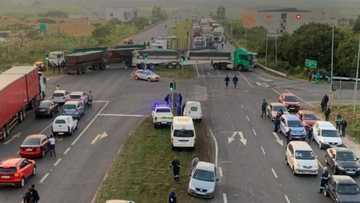
Read also
National shutdown: Citizens called to take a stand against rising cost of living, fuel prices, blackouts
Which country is cheaper?
Trying to figure out which country is less expensive can be quite tricky. Prices differ drastically depend on what you are buying. However, when looking at the monthly cost for an average family of four, Mozambique seems to be on the steep side with R38 600, while utilities in South Africa are the highest at R1 715.
Numbeo and other cost of living indexes are usually designed to help people who are considering relocating to a new country to get a sense of how much they will be paying on average if they lived there.
Why the cost of South Africa’s food trolley has gone up at least 12% this year
Briefly News previously reported that South Africans have been finding it increasingly difficult to make ends meet in this current economic climate. Many have started to notice that the cost of living is not what it used to be and basic food prices are going up on a month-to-month basis.
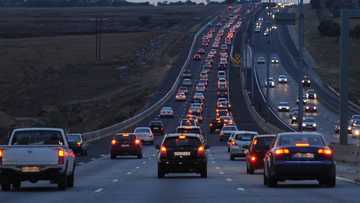
Read also
No, South Africa is not the most dangerous country to drive in, Zutobi research study is misleading
On Tuesday, 31 May, the Department of Energy and Minerals announced that the fuel price will hike up to a record high price of R24.17/litre for 95-octane fuel and R23.94/litre for 93. With rising fuel prices, there is a concern that food and other necessary expenses will also cost more.
In March 2022, the Food and Agriculture Organisation (FAO) announced that global food prices went up by 12.5%, the highest hike in years. The main reason behind this has been Russia's invasion of Ukraine.
New feature: check out news exactly for YOU ➡️ find "Recommended for you" block and enjoy!
Source: Briefly News

